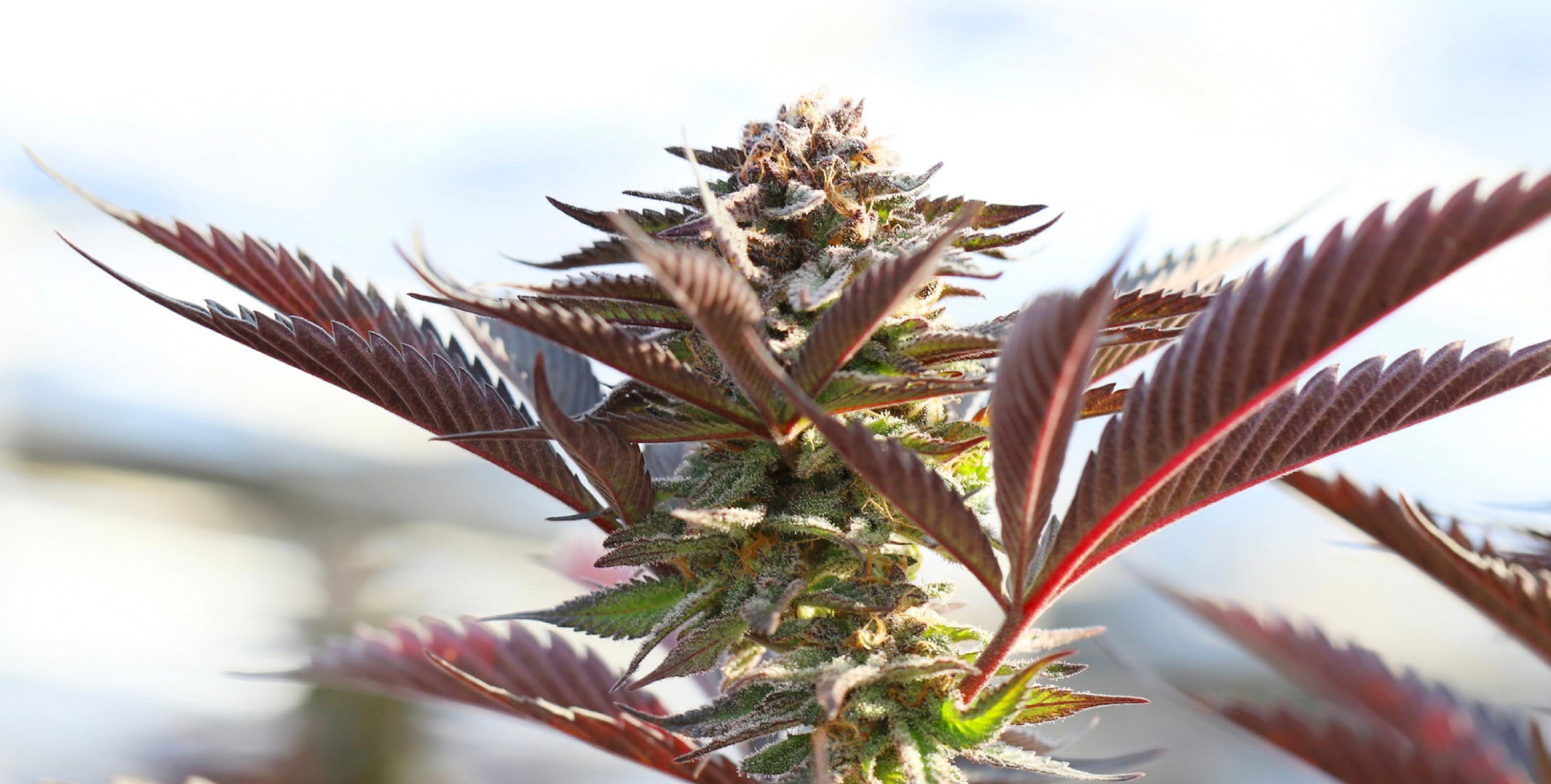by Sugar Team August 14, 2022 7 min read

For years, the conversation around cigarettes and their detrimental health effects had to do with smoke. It seemed very obvious that inhaling the fumes laced with hundred of toxins would be bad for you, whether you were the one holding the cigarette or not.
Second-hand smoke became the rallying cry that worked against the tobacco industry, and forced smokers outside or into separate public areas.
But with the push to quit smoking came another industry - non-cigarette nicotine.
With the rise of patches, gums, and e-cigarettes or vapes, nicotine was added everywhere to help with withdrawal or supplant the addiction.
The question now is does nicotine have negative health benefits of its own?
Below, we'll examine that question thoroughly and discuss other ways that you can help fight the cravings.
Nicotine is a substance found in the nightshade family of plants, which includes, most famously, tobacco. It's considered a stimulant and works by binding to receptors in your nervous system, releasing chemicals that stimulate the body.
However, it is also classified as a poison by the CDC and can, in high enough quantities, cause death. The article could probably just end there, but classifying something as toxic doesn't necessarily move it off the market.
Many things can cause death if consumed in a great enough amount, meaning supporters of the chemical will purport its relative safety in the small doses found in nicotine products.
Humans have been using nicotine in some form for thousands of years. Among the first recorded uses was by the Maya people in Central America, who used it for religious ceremonies. European explorers then brought tobacco back with them and it slowly became a part of global culture.
Cigarettes were invented in the late 1800s and their popularity took off in the early 1900s. By the mid-20th century, they were considered essential accessories, with both men and women smoking regularly.

The health effects of cigarettes were unknown for many years, with the consensus being that they were not particularly harmful. This began to change in the 1950s as studies started to be published linking smoking to lung cancer.
It took a few more decades for this connection to be fully accepted by the public, but by the late 20th century, smoking was well on its way to being demonized.
Nicotine in particular has also been used as an insecticide since the 1600s. It wasn't until the mid-20th century that its use began to be questioned, with studies linking it to cancer in animals. In 2014, the Environmental Protection Agency announced a cancellation order for all nicotine pesticides in the United States.
The thousands of chemical compounds that are in a tobacco cigarette pose huge health risks that have been noted widely and accepted by the general public. Sales of tobacco products have declined, and the number of smokers has dropped drastically, from nearly 21 of every 100 U.S. adults in 2005 to just 13 in 2020.
However, the rise of nicotine-filled e-cigarettes has filled the void, with usage especially increasing among young people.
That is even though the American Heart Association lists nicotine as “dangerous” and notes that it can cause:
Increased blood pressure
Increased heart rate
Narrowing of arteries
Hardening of arterial walls, which can lead to a heart attack
In 2015, a meta-study from the Indian Journal of Medical and Paediatric Oncology, published in the National Library of Medicine, examined many findings that had to do with only nicotine-related health effects, excluding the additional harmful effects of cigarettes.
Among the findings were adverse effects on the:
Heart
Reproductive system
Lung
Kidney
The study also found strong evidence linking nicotine usage to several cancers including lung, pancreatic, and breast cancer in humans.
In it, they claim that nicotine is “one of the most toxic of all poisons” and references a surgeon general report that suggests it is as addictive as cocaine or heroin.
The effect of long-term nicotine use can be devastating to your health. But what can you do instead?

So if you are looking to quit smoking but now don't want to use a nicotine-filled patch or gum, what steps should you follow?
First, you should know that you are not alone. The American Lung Association claims that 70% of smokers want to quit, though it remains a challenge because of the addictive nature of nicotine. Remember these tips:
Find your support system: Friends, family, and online resources can all help you in this journey. The ALA even has a tobacco counseling program called “Freedom From Smoking.”
Create a plan: This should be tailored to your needs and may change as you go. But having a plan gives you a roadmap and helps enforce the rules you have laid out ahead of time.
Set a quit date: Giving yourself time to prepare mentally and physically will increase your chances of success.
Know your triggers: Is it after meals? When you drink? When you are stressed? Avoiding these triggers or having a plan to deal with them can help.
Don't beat yourself up: One of the hardest things about quitting smoking is that people who have never smoked before will never understand how hard it is. If you have a slip-up, don't dwell on it and use it as an excuse to give up altogether.
Once you've thrown out the smokes, there will be a period of withdrawal. Nicotine is a drug, and like all drugs, it comes with withdrawal symptoms when you try to quit. These can include:
Anxiety
Depression
Headaches
Increased appetite
Insomnia
Irritability
Restlessness
Cravings are also a common symptom and can be difficult to deal with. The nicotine has created changes in your brain, and it will take time for those changes to go away. Let's go through some helpful tips on how to avoid those cravings whenever possible.
One major trigger for cigarette cravings is hunger. When you are hungry, your body is looking for a quick hit of energy and cigarettes seem to fit that bill.
But if you are eating a healthy diet, your blood sugar will be more stable and you will be less likely to experience the spikes and crashes that lead to cravings.
A healthy diet includes lots of fruits, vegetables, whole grains, and lean protein. It's also important to limit processed foods, sugary drinks, and excessive amounts of caffeine.

Exercise is another great way to keep your body and mind healthy. It releases endorphins, which have mood-boosting properties, and can help reduce stress.
It's also a great distraction from cravings. Instead of focusing on the fact that you want a cigarette, you can focus on your workout and how good it feels to be moving your body.
If you are new to exercise, start slow and gradually increase the intensity and frequency of your workouts. There are lots of great workout programs you can find online or in fitness magazines to help you get started.
Relaxation techniques can also help reduce stress, which is a major trigger for cravings. When you are feeling stressed, your body releases the hormone cortisol.
Cortisol can increase your heart rate and blood pressure, and make you more likely to crave cigarettes.
There are lots of great relaxation techniques you can try, including deep breathing, progressive muscle relaxation, and yoga.
Deep breathing, meditation, and yoga can all help to clear your mind and relax your body.
Certain situations may trigger a craving for cigarettes. If you can avoid these situations, or at least be prepared for them, you will be more likely to resist the urge to smoke.
Some common triggers include drinking alcohol, being around other smokers, and feeling bored or anxious.
If you can't avoid a trigger situation, try to have a plan in place for how you will deal with it. For example, if you are going to be around other smokers, you could chew gum or carry a stress ball to keep your hands busy.
When a craving strikes, it can be helpful to distract yourself with another activity. This could be something as simple as taking a walk, calling a friend, or reading a book.
The goal is to take your mind off of the craving and focus on something else. If you can do this for long enough, the craving will usually pass.
If you've tried all of those things and they haven't worked, or if you just miss the routine and calm that a short break can provide, perhaps try a nicotine alternative like cannabidiol.
Cannabidiol (CBD) is a non-psychoactive compound found in the hemp plant, and it's becoming more and more popular as an alternative to smoking cigarettes.
CBD can be purchased in many forms, including cigarettes, oils, edibles, vape cartridges, and even topicals. And while there is still much research to be done on the health effects of CBD, early studies have shown that it could help with anxiety, pain relief, and even sleep disorders.
It has even been used in the treatment of childhood epilepsy syndromes including Dravet syndrome and Lennox-Gastaut syndrome, reducing or even eliminating seizures. At this point, the worst side effects of CBD use have been listed as nausea and fatigue, far less than the disastrous consequences of nicotine use.
If there is one thing you should take away from this article, it's that nicotine - not just cigarettes - can have extremely negative health effects. Using nicotine-based products can continue to cause harm, while also not necessarily helping you quit smoking at all.
The addiction will still be there, and it will leave a slippery slope to going back to cigarettes.
When you are quitting, consider using a nicotine stand-in like CBD. These can help with the withdrawal symptoms and provide other beneficial health effects, all while filling the habit and keeping you occupied during the worst cravings.
And finally, reach out for support - from family, friends, or online groups. People who have gone through it before are more likely to understand what you're going through and can be a sounding board when you are going through the toughest period.

by Sugar Team April 10, 2023 7 min read

by Sugar Team March 31, 2023 8 min read

by Sugar Team March 17, 2023 7 min read